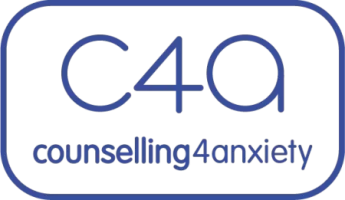Agoraphobia, characterized by an intense fear of situations that might cause panic or a feeling of being trapped, can significantly impact a person's life. While professional help from a therapist is crucial, there are also steps individuals with agoraphobia can take on their own journey towards feeling empowered and regaining control. Ensuring that you feel that you have the necessary tools to be able to work through the fears that agoraphobia creates, is essential in the healing journey and in widening your life experiences in the future.
Here are some self-management techniques that can be incorporated into daily life:
Education and Understanding:
- Learn about Agoraphobia: Knowledge is power. Understanding the root causes of agoraphobia, its symptoms, and common triggers can be a starting point for self-compassion and developing coping mechanisms. Reputable mental health organizations and online resources can provide valuable information.
- Identify Triggers: Keeping a journal can help identify specific situations, places, or thoughts that trigger anxiety. Recognizing these triggers empowers individuals to prepare coping strategies in advance. It may also help in making sense of where the roots of your phobias may have originated from and doing so can frame and boundary the root of the fears, rather than feeling that they are 'all-encompassing'.
Building a Support System:
- Connect with Loved Ones: Social isolation can worsen agoraphobia. Sharing your struggles with a trusted friend, family member, or therapist can provide invaluable emotional support and a sense of accountability.
- Consider Support Groups: Connecting with others who understand the challenges of agoraphobia can be incredibly helpful. Support groups can offer a safe space to share experiences, learn from others, and feel less alone.
Challenging Negative Thoughts:
- Cognitive Reframing: Agoraphobic thoughts often focus on potential dangers and worst-case scenarios. Practice reframing these thoughts into more realistic and empowering perspectives. For example, instead of "I can't leave the house; I'll have a panic attack," reframe it as "I may feel anxious, but I have coping skills to manage it." (Changing what we say to ourselves is a powerful tool in reducing fears).
- Challenge Catastrophizing: The fear of a situation spiralling out of control is a common trigger. Challenge these catastrophic thoughts with evidence. Ask yourself, "Has the worst-case scenario ever actually happened?"
Relaxation Techniques:
- Deep Breathing: Simple deep breathing exercises can significantly reduce anxiety in the moment. Focus on slow, deep breaths from your diaphragm, inhaling for a count of four and exhaling for a count of six. You may want to purse your lips when exhaling, like you are exhaling from a straw.
- Mindfulness Meditation: Meditation practices cultivate present-moment awareness and calmness. Techniques like focusing on your breath or a mantra can help manage anxiety symptoms.
- Progressive Muscle Relaxation: This technique involves tensing and relaxing different muscle groups, promoting relaxation throughout the body and reducing overall tension. You might also want to imagine the word 'relax' when you relax your muscles and this can also help to stimulate the Parasympathetic Nervous System, or what can be called the 'brake' of the nervous system.
Healthy Lifestyle Habits:
- Regular Exercise: Physical activity is a powerful tool for managing anxiety. Aim for at least 30 minutes of moderate-intensity exercise most days of the week.
- Healthy Diet: Eating a balanced diet rich in whole foods can improve mood and energy levels, indirectly aiding anxiety management.
- Quality Sleep: Anxiety can disrupt sleep, and poor sleep can worsen anxiety. Develop healthy sleep hygiene habits for a consistent, restful sleep schedule. This means limiting screen time on your phone and ensuring that you do not scroll on your phone in bed.
- Limit Caffeine and Alcohol: These substances can exacerbate anxiety symptoms. Consider reducing or eliminating them from your diet. Additionally, if you still want to consume caffeine, try and have your last coffee around 3 or 4 pm in the afternoon.
Gradual Exposure:
- Create an Exposure Hierarchy: List situations that trigger anxiety, ranking them from least to most anxiety-provoking. This hierarchy becomes your roadmap for gradual exposure. They key here is to then work through them at a consistent pace.
- Start Small and Celebrate Successes: Begin with the least anxiety-provoking situation on your list. Celebrate even small successes, reinforcing your progress.
- Develop a Safety Plan: Having a safety plan for situations that trigger anxiety can provide a sense of control. This might involve relaxation techniques, having a trusted person on call, or carrying a comfort item.
Additional Tips:
- Reward Yourself: Positive reinforcement can be a powerful motivator. Celebrate your progress, big or small, with rewards you enjoy.
- Focus on Progress, Not Perfection: There will be setbacks, but setbacks are not failures. View them as learning opportunities and adjust your approach as needed.
- Be Patient with Yourself: Recovery takes time and effort. Celebrate your commitment to self-improvement and focus on gradual progress.
Remember:
- Professional Help is Essential: Self-management techniques are valuable tools, but professional therapy is crucial for long-term recovery. A therapist can provide personalized guidance, support, and address the underlying causes of agoraphobia.
- Seek Support When Needed: There's no shame in seeking help. Don't hesitate to reach out to your therapist, support system, or crisis hotlines if you feel overwhelmed.
By incorporating these self-management techniques, individuals with agoraphobia can empower themselves to manage their anxiety, reclaim their lives, and gradually return to the activities they once enjoyed. Remember, recovery may not be a linear process, but it is something that is achievable and within your means. It may take time in doing so, but whilst there may be setbacks, acknowledge them and continue with your plan. As they say, you may feel the fear, but do it anyway - in your therapeutic journey.

